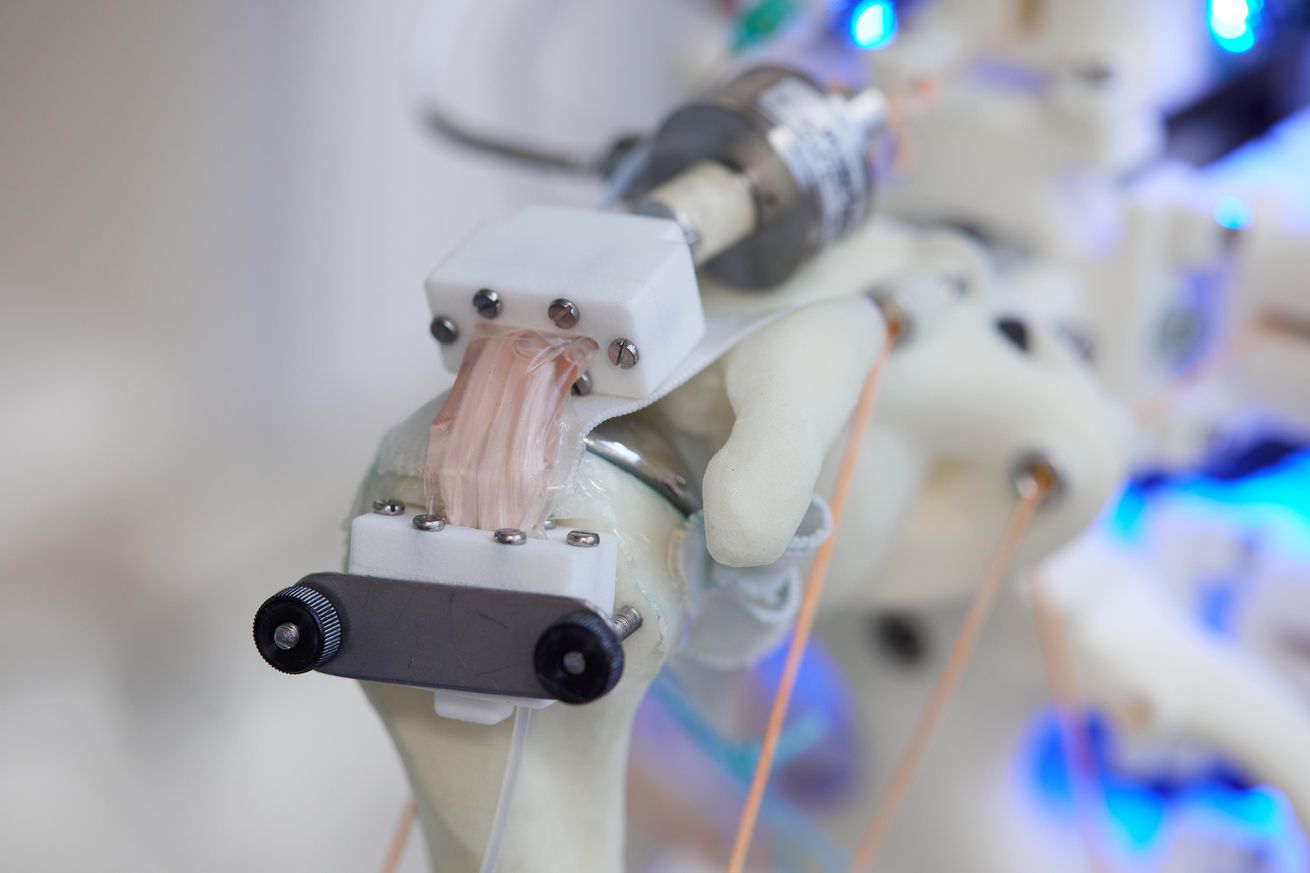The cells were placed in a replica shoulder joint that was moved around to stimulate growth. | Image: Fisher Studios
The science of tissue engineering — or growing human cells for use in medicine — is very much in its infancy, with only the simplest lab-grown cells able to be used in experimental treatments today. But researchers say a new method of tissue engineering could potentially improve the quality of this work: growing the cells on a moving robot skeleton.
Typically, cells used in this sort of regenerative medicine are grown in static environments. Think: petri dishes and miniature 3D scaffolds. A few experiments in the past have shown that cells can be grown on moving structures like hinges, but these have only stretched or bent the tissue in a single direction. But researchers from the University of Oxford and robotics firm Devanthro thought…


